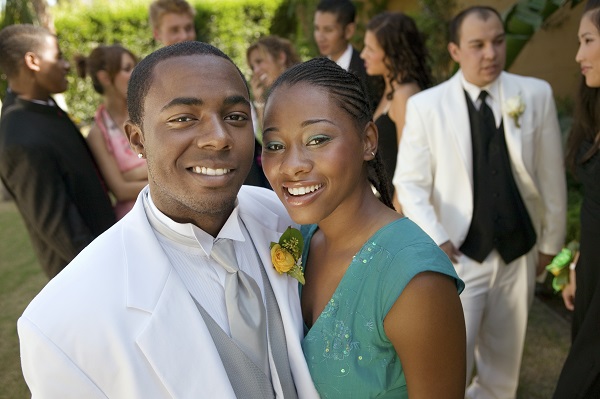OK, you’re in shock.
You are the parent of a child who’s old enough to attend prom.
As the school year comes to an end, prom, end-of-the-year parties, senior and other trips, and graduation are all opportunities for your child to celebrate with their friends, have fun and blow off some steam.
Sounds innocent enough, right? But older teens are much like toddlers in many ways—they’re ready to push the boundaries, and there’s a lot more they can push back on. Think alcohol and drugs, sex and any number of other bad situations.
Oh boy. Sounds like it’s time to talk it out.
Prom (and other event) prep
Amid the flurry of picking out attire, buying flowers and getting primped, make time to have a conversation about your expectations. My own daughter celebrated her prom just a few weeks ago, and even though she attends a very conservative school, that’s no guarantee that everyone there is conservative when it comes to underage alcohol use or other temptations. So get ready to get prepped:
1. You really have to ask more questions than you might think.
Prom and other events often have after-parties and other related activities. So talk to your children about where exactly they will be and who they will be with. And it’s never wrong to contact the parents of the friends your child will be with or whose house is holding the after-party to make sure they have the same plans and values as you. That’s what we did.
2. It’s a special occasion, but that doesn’t mean the rules go away.
Hopefully, you’ve already had ongoing conversations with your child about the dangers of alcohol and other drugs and about sex. For many kids, prom and other events signal a turning point when they are finally an adult, which can mean indulging in those shots or experiencing sex for the first time.
But all that anticipation of a wonderful night? It can turn into a hard letdown and heavy regret when a child tries to be “adult” too soon. Worst-case scenario, alcohol and drugs can lower the guard, leading to accidents, violence or going farther than your child wanted to go with a significant other. Or overindulging could make your child so sick that he or she spends the night huddled over a toilet instead of having fun with friends. It never hurts to go over these kinds of scenarios.
Even though these are such special occasions, your child also shouldn’t think that drugs or alcohol are necessary to have a good time. If that’s the case, take a closer look at where he or she may be getting that message and make it clear that message is not correct.
It can be tough, but remember that kids need and want rules. They may push us sometimes and act out, but I have to believe that underneath, they recognize that the rules mean we care.
3. Be a little Big Brother-y—it’s OK.
Even if you trust your child, it’s fine to check up with your kids to make sure they are where they say they are. Kids may not lie, but they also may not tell you everything. For example, ask them to call you to check in as they go from one location to another—but make sure the plan doesn’t change, including curfew.
Does your family have iPhones? It may seem sneaky, but the Find Your iPhone app is a great way to make sure kids are where they are supposed to be.
4. Practice how to respond to peer pressure.
It’s a fact: Even if your child has your same values, it can be hard to say no in the face of all their friends saying yes. So have your child practice their spiel before they’re in that situation. Are friends urging them to drink or use drugs? An excuse like, “I have to compete tomorrow, and I don’t want it to affect my game,” can help them save face. Or then there’s the trusty: “I can’t, my parents will literally drug-test/breathalyze me when I get home.” Or if all else fails, distract: Your child can say, “OK, but I’ll be right back” or “Let me go to the bathroom first,” then move to another group of friends. And they should always remember: Never drink an open drink that was brought to you. Another tip: Have a friend watch out for each other.
5. If things get bad, have a code word.
If your child gets into a bad situation and needs help getting out of it, have a code word that he or she can text to you or say to you during a call, which means, “Mom or Dad, get over here right now and pick me up!” This allows your child to not be embarrassed about calling for help in front of their friends, but get the help he or she needs.
For my own daughter, she said that prom was the best night of her senior year. She and her friends partied safely and had joy—and isn’t that the whole point of it?




